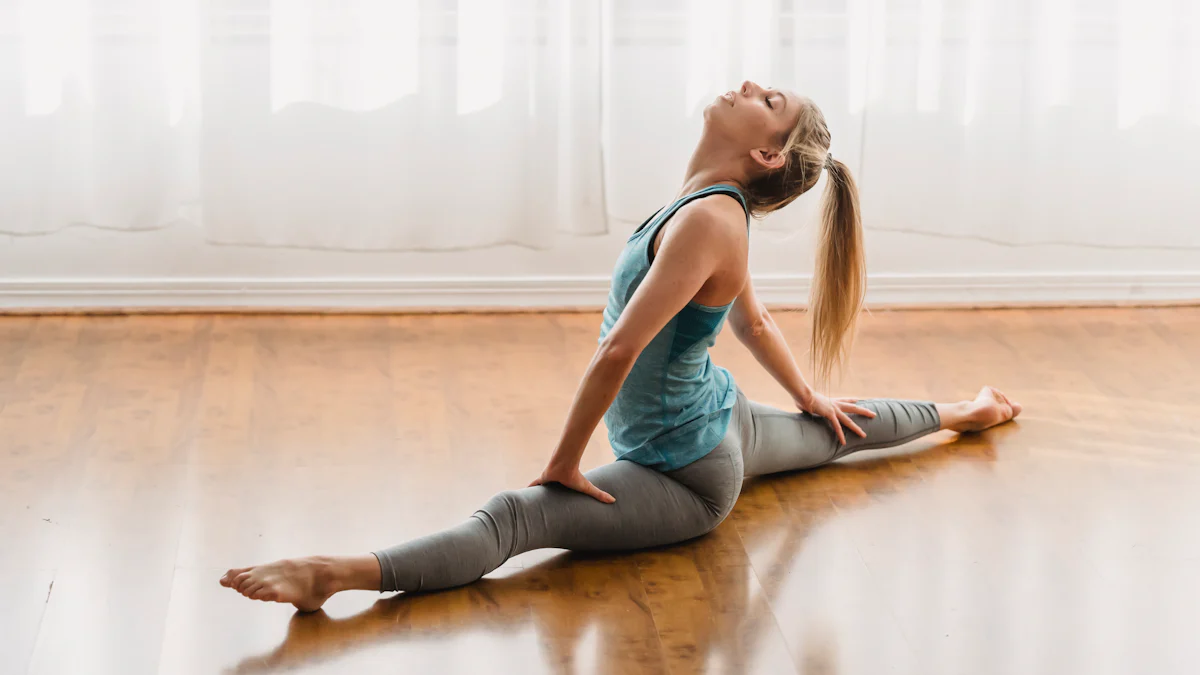Fitness plays a vital role in your life. It involves more than just physical strength. Fitness enhances mental acuity and improves mood. Regular physical activity boosts energy levels and strengthens bones and muscles. You can control weight and reduce the risk of diseases like diabetes and cardiovascular issues through fitness. A healthier lifestyle emerges when you incorporate fitness into daily routines. You gain improved brain health, better sleep, and an increased chance of living longer. Embrace fitness to transform your life and enjoy these benefits.
Understanding Physical Activity

Physical activity forms the backbone of fitness. Different types of exercises contribute to a healthier lifestyle. Let’s dive into some popular options.
Types of Physical Activities
Aerobic Exercises
Aerobic exercises get your heart pumping. Activities like running, swimming, and cycling fall into this category. These exercises improve cardiovascular health. Regular aerobic workouts help manage weight and boost energy levels.
Strength Training
Strength training builds muscle and increases bone density. Lifting weights or using resistance bands are common methods. This type of exercise enhances muscular strength. Strong muscles support overall fitness and daily activities.
Flexibility Exercises
Flexibility exercises keep your body limber. Stretching and yoga are excellent choices. These activities prevent injuries and improve posture. Flexibility contributes to better physical performance.
Benefits of Regular Exercise
Regular exercise offers numerous advantages. Fitness impacts both physical and mental well-being.
Physical Health Benefits
Exercise strengthens bones and muscles. It reduces the risk of chronic diseases like diabetes and heart disease. Fitness also helps with weight management. A consistent routine enhances your ability to perform daily tasks.
Mental Health Benefits
Physical activity boosts brain health and cognitive function. It reduces the risk of anxiety and depression. Exercise improves mood and overall quality of life. Staying active enhances mental clarity and focus.
Tips for Staying Active
Maintaining an active lifestyle requires commitment. Here are some tips to keep you on track.
Setting Realistic Goals
Set achievable fitness goals. Start small and gradually increase intensity. Realistic targets keep motivation high. Celebrate each milestone to stay encouraged.
Finding Activities You Enjoy
Choose activities that bring joy. Enjoyment makes fitness feel less like a chore. Experiment with different exercises to find your favorite. A fun workout routine keeps you engaged and consistent.
Nutrition and Fitness
Importance of a Balanced Diet
A balanced diet fuels your body for fitness. You need the right mix of nutrients to perform well.
Macronutrients
Macronutrients include proteins, carbohydrates, and fats. Proteins build and repair muscles. Carbohydrates provide energy for workouts. Fats support cell growth and protect organs. Each macronutrient plays a crucial role in your fitness journey.
Micronutrients
Micronutrients consist of vitamins and minerals. These nutrients boost immune function and bone health. Iron, calcium, and vitamin D are essential for active individuals. A varied diet ensures you get enough micronutrients.
Meal Planning Tips
Planning meals helps maintain a healthy diet. You can make nutritious choices with a little preparation.
Preparing Healthy Meals
Prepare meals using fresh ingredients. Include a variety of vegetables, lean proteins, and whole grains. Cooking at home lets you control what goes into your food. Experiment with herbs and spices for flavor without extra calories.
Portion Control
Portion control prevents overeating. Use smaller plates to help manage portion sizes. Pay attention to hunger cues and stop eating when full. Balanced portions support your fitness goals.
Hydration and Its Role
Hydration is vital for overall health. Water keeps your body functioning properly.
Daily Water Intake
Aim to drink plenty of water each day. Water regulates body temperature and lubricates joints. Staying hydrated boosts energy levels and concentration. Carry a water bottle to remind yourself to drink regularly.
Effects of Dehydration
Dehydration affects performance and health. Lack of water leads to fatigue and dizziness. It can hinder workouts and recovery. Prioritize hydration to keep your body in top shape.
Integrating nutrition with physical activity enhances lifelong health. A balanced diet complements your fitness routine. Embrace these tips to fuel your journey toward a healthier lifestyle.
Mental Health and Fitness
Connection Between Mind and Body
Physical activity does wonders for your mind. Exercise reduces stress and boosts mood. The Centers for Disease Control and Prevention highlights exercise as crucial for health. Movement helps you feel calmer and more focused. Stress melts away when you stay active.
Stress Reduction
Exercise acts as a natural stress reliever. Activities like walking or cycling help clear your mind. Your body releases endorphins during physical activity. These chemicals improve your sense of well-being. Regular movement keeps stress levels in check.
Improved Mood
A good workout lifts your spirits. Physical activity increases serotonin levels. This chemical enhances mood and happiness. Exercise reduces symptoms of anxiety and depression. A consistent routine keeps your mind sharp and positive.
Mindfulness Practices
Mindfulness connects your mind and body. Practices like meditation and yoga enhance mental fitness. These activities promote relaxation and awareness.
Meditation
Meditation calms the mind. Focus on your breath to reduce anxiety. Daily practice improves concentration and emotional health. Meditation helps you manage stress effectively. A few minutes each day makes a big difference.
Yoga
Yoga combines movement and mindfulness. Stretching and breathing exercises improve flexibility and mental clarity. Yoga enhances mood and reduces tension. A regular yoga practice supports overall well-being. Enjoy the peace and balance it brings to your life.
Flexibility and Recovery

Importance of Flexibility
Flexibility keeps your body agile and ready for action. Stretching helps maintain a full range of motion in your joints. You can move more freely and comfortably with good flexibility. This reduces the chance of injuries during physical activities.
Stretching Techniques
You can try various stretching techniques to improve flexibility. Dynamic stretches involve movement and help warm up muscles. Static stretches involve holding a position to lengthen muscles. Both types of stretches have their benefits. Dynamic stretches are great before workouts, while static stretches work well after exercise.
Benefits of Flexibility
Flexibility offers several benefits. You can perform daily tasks with ease. Good flexibility enhances athletic performance. You might find that flexibility helps prevent muscle stiffness too. Regular stretching can also improve posture and reduce back pain.
Recovery Strategies
Recovery is crucial for maintaining fitness. Your body needs time to repair and strengthen itself after exercise. Proper recovery helps prevent injuries and keeps you feeling your best.
Rest Days
Rest days play a vital role in recovery. Your muscles need time to heal and grow stronger. Taking rest days prevents overtraining and burnout. You can use rest days to focus on light activities like walking or yoga. This keeps your body active without straining it.
Sleep and Recovery
Sleep is a powerful recovery tool. Your body repairs tissues and builds muscle during sleep. Aim for 7-9 hours of quality sleep each night. A consistent sleep schedule supports your fitness goals. You might notice improved energy levels and mood with enough rest. Prioritize sleep to enhance your overall well-being.
Fitness improves health, mood, and energy. Start small and stay consistent. Choose activities you love and set realistic goals. Nutrition and hydration support your efforts. Remember, every step counts. Your healthier lifestyle awaits. Take action today and enjoy the benefits tomorrow.


